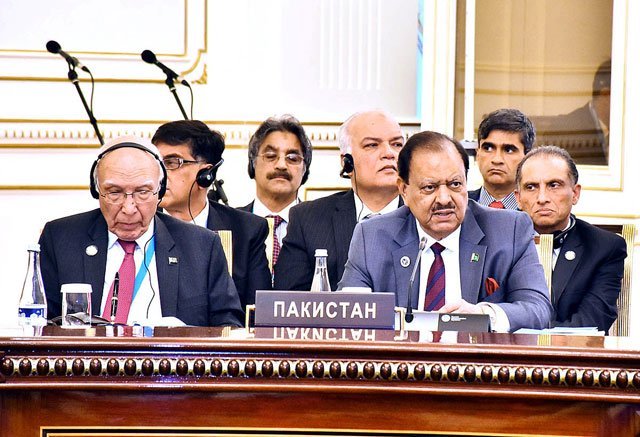Introduction
Pakistan finally acquired one of the most significant foreign policy objectives when it was granted full membership by the powerful Shanghai Cooperation Organization (SCO) on July 2015 at its 15th Summit held in Ufa. Now after having fulfilled certain statutory and legal requirements, the country has formally become a full-time member in the recent meetings of the SCO at its Heads of State Summit in Tashkent on 25 June 2016. The SCO as a potentially powerful regional organization could well endow Pakistan with a range of opportunities to combat security threats, consolidate peace and sustainable development, clamp down upon drug trade, eliminate its mounting energy crisis and settle its scores with India. To reap rich dividends from the organization, Pakistan seems to be faced with some obstructive issues in all sectors. The article discusses in detail the political, socio-economic and security-related opportunities which Pakistan could attain from the organization.
Opportunities for Pakistan
Since the SCO region covers almost 60% of the Eurasian landmass, with over 1.5 billion population, including some of the world’s leading energy-rich nations, Pakistan’s entrance into this China-Russia-led economic and security bloc will diametrically change the regional dynamics such as South Asian and Central Asian security and economic connectivity. Arguably, Pakistan’s full membership will help her in tremendously expanding her multifaceted bilateral economic and strategic cooperation with member states of this potential organization. Importantly, it is highly likely that the SCO would provide Pakistan with opportunities to decrease its dependence on western powers, particularly the United States, eradicate its mounting energy crisis, foster its faltering economy, eliminate rampaging terrorism and disruptive internal insurgency and offer Pakistan a platform to work together and enhance mutual trust with India, thereby resolving long lasting contentious issues with neighbouring India.
On the other hand, other members of the organization would also immensely benefit from Pakistan’s full membership. The former connects South Asia with Central Asia by providing the shortest access to Chinese, Russian and Central Asian products to reach the Middle East, Africa and Western Europe via the deep sea port of Gwadar, thus boosting trade and economic cooperation in the region. On many fronts, Pakistan fully shares the concerns of the regional states such as three evils of terrorism, extremism and separatism. The following are the potential benefits which Pakistan could reap from the organization.
Diversification of foreign policy: Pak-Russia relations
Since independence Pakistan has maintained its tilt mostly towards the Western Hemisphere while depriving itself from the tremendous economic, military and political advantages of powerful Russia, formerly the Union of Soviet Socialist Republic (USSR). The US left Pakistan in the lurch in testing and troubling times of 1965 and 1971. Now, it is again surrounded by vast geostrategic and geo-economic opportunities to revisit and diversify its foreign policy by fostering its economic and defence ties with Russia under the umbrella of the SCO.i
Pakistan’s entry into the SCO has positively impacted Pak-Russian relations. The strained relationship of the Cold War days of Russian tilt towards India and that of Pakistan towards the US has changed considerably. At present, there is a marked spirit of understanding and cooperation between them as seen in recent developments of bilateral visits due to the opportunity provided by the SCO. Significantly, Islamabad helped Moscow in acquiring an observer status at the Organisation of Islamic Conference (OIC), and Moscow reciprocated by helping Pakistan in getting similar status at the SCO in 2005 and full membership in 2015. The exchange of high level visits has made the relations meaningfully productive at all levels, and both countries are predisposed to establish amicable relations, despite divergences and irritants of the past. Therefore, in the changing dynamics of global affairs, it is in Pakistan’s strategic interest to extend its politico-military outreach towards other global power centres, including Russia, and work jointly with the Sino-Russian strategic nexus.ii
The SCO has already proved quite effective for harmonious bilateral ties between both nuclear powers by cementing their relations. An important event in the context of Pak-Russia relations was the visit of Pakistani Prime Minister Shaukat Aziz in October 2005 to attend the SCO meeting, where he also met his Russian counterpart, Mikhail Fradkov, to discuss bilateral relations. At the June 2006 SCO summit in Shanghai, President Musharraf thanked the Russian head of state for supporting Pakistan in obtaining the observer status in the SCO and sought his country’s support in becoming a full member. Reciprocating, President Putin thanked President Musharraf for Pakistan’s support for Russia gaining observer status at the OIC. Both presidents expressed satisfaction with the good diplomatic and political ties and agreed on the need to boost ties in trade, commercial, and economic fields.iii
The relations between Pakistan and the Russian Federation were further strengthened by Russian Prime Minister Mikhail Fradkov’s three-day official visit to Islamabad in April 2007; he became the first Russian prime minister to visit Pakistan in 38 years. This visit of the Russian prime minister had special significance for its contribution to the development of broader ties between the two countries. As a result of this meeting, Russia allowed China to export 500 WD-93 engines for the JF-17 Thunder Jets which enabled Pakistan to construct a squadron of these aircraft. The meeting opened the door to the export of Russian technology for Pakistan’s latest venture: satellites and the J-10B. Russia also provided four Russian-made helicopters MI-17. The MI-17 can perform more missions than the US Cobra, which is primarily designed to fire air-to-ground missiles. The MI-17 is a medium-weight helicopter, capable of carrying troops, performing medical evacuations and carrying out ground attacks.iv
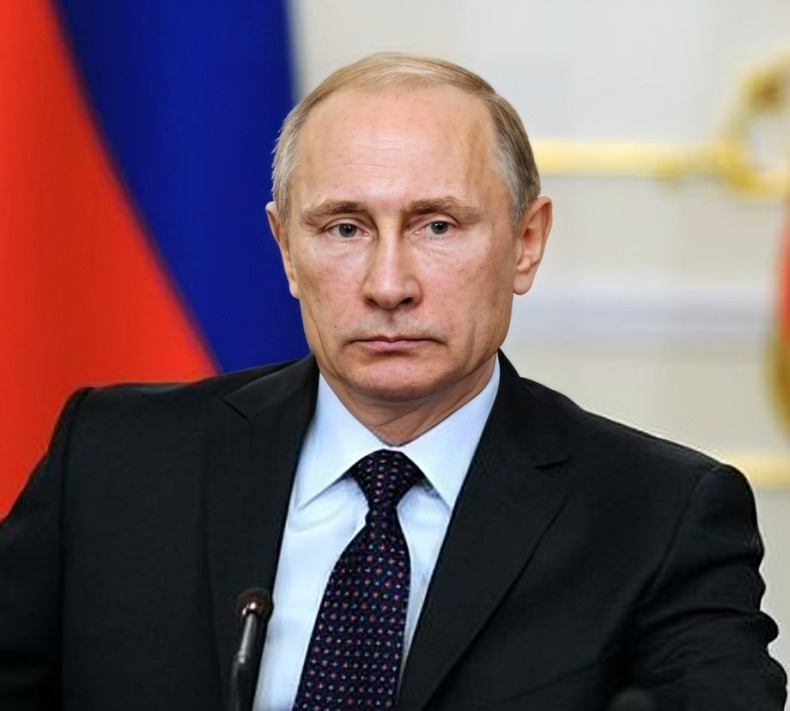
Another positive impact of SCO is expansion in Pak-Russian trade and commercial relations. Trade between the two countries is showing signs of expansion, though the balance is in favour of Russia. Pakistani businessmen have direct contact with Russian entrepreneurs.v In the energy sector, there are good prospects for Pak-Russia cooperation. Pakistan signed MoUs with Russia for cooperation in the oil and gas sector and Russian oil and gas companies have concluded MoUs with Pakistan’s private sector oil and gas companies for local contract bidding.vi
The visit of Hina Rabbani Khar, former foreign minister of Pakistan, to Russia, was one of the encouraging signs of renewed engagement between the two countries. The overriding message of foreign minister Hina Rabbani’s joint press conference with her Russian counterpart Sergey Lavrov after talks in Moscow for the expansion of political and economic cooperation was a positive step towards developing a strategic partnership.vii
The SCO has already helped Pakistan to open up a new chapter of bilateral relations with Russia. In 2011, Russia changed its policy and Putin publicly endorsed Pakistan’s bid to join the SCO and said that Pakistan was a very important partner in South Asia and the Muslim world for Russia. Putin offered Russia’s assistance in expansion of Pakistan Steel Mills and provision of technical support for the Guddu and Muzaffargarh power plants and Russia was interested in developing the Thar Coal Project.viii In 2011, Russia strongly condemned the NATO strike in Pakistan and the Russian foreign minister stated it was unacceptable to violate the sovereignty of a state, even when planning and carrying out counter-insurgent operations.ix
In 2012, Russian president Vladimir Putin announced to pay a state visit to Pakistan soon after his re-election, later he cancelled it, citing other crucial engagement.x To offset the diplomatic setback caused by this unexpected cancellation of a much-anticipated visit, Putin sent his Foreign Minister Sergey Viktorovich Lavrov.xi Meanwhile, Pakistan army chief General Ashfaq Parvez Kayani visited Moscow from October 4 for three-day official visit. Where he was received warmly by Defence Minister Anatoly Serdyukovand Russian Ground Forces Commander-in-Chief (C-in-C) Colonel General Vladimir V Chirkin.xii On 5 August, 2013 Colonel General Vladimir V Chirkin visited Pakistan where he was received by General Kayani. The two generals discussed matters of mutual interest with emphasis on improving defence cooperation, army-to-army relations the security situation in the region, especially in Afghanistan post 2014.xiii
After concluding their first strategic dialogue on August 31, 2013 by the foreign secretaries in Moscow, the Pakistani side was led by former foreign secretary Jalil Abbas Jilani and that of Russian by Russia’s first deputy minister of foreign affairs Vladimir Gennadievich Titov. The dialogue laid an institutional framework for building closer relations between the two countries through discussions for cooperation in political, economic, defence and other sectors. Both countries agreed for more high-level contacts aimed at closely coordinating on regional and international issues, and expanding trade, investment and cooperation in the field of energy and power generation. In a press conference, the ambassador of Russia agreed to sell Russian Mi-35 Hind attack helicopters to Pakistan to help the country root out terrorism and security related issues, and lifted its embargo on the arms supply to Pakistan.xiv All that became possible when New Delhi had sought to modernise its armed forces’ ageing hardware by purchasing weapons from Israel, France, Britain and the US.
To further advance bilateral relations, Army Chief Gen Raheel Sharif paid an important visit to Russia in June 2015 to attend the Army-2015 expo near Moscow. Pakistan finalised a deal to purchase four Mi-35 ‘Hind E’ attack helicopters from Russia which it had been pursuing the helicopter purchase deal since 2009. The finalisation of the deal is a major breakthrough because of the fact that Moscow went ahead with the deal despite strong Indian opposition to it. The deal happened amid warming of ties between Islamabad and Moscow. According to Russian newswire TASS, the Mi-35 is a profoundly modernised version of the Mi-24 (Hind) attack helicopter with new avionics and onboard equipment, a different tail rotor and a more powerful engine.xv
Moscow has already indicated to Islamabad that it wants its gas company, Gazprom, the world’s largest gas company, to have a role in the project that Pakistan has warmly welcomed Russian. Russia’s readiness to participate in the energy projects of Turkmenistan, Afghanistan, Pakistan and India (TAPI) as well as Central Asia and South Asia 1000 (CASA) is also significant and has been welcomed by Pakistan as it faces an acute energy deficit. The two countries are also close to firming up a MoU on the expansion and modernization of the Pakistan Steel Mills, a key state enterprise and they have also been discussing the possibility of developing rail links with Iran and other areas in the SCO region from Pakistan. Russia has shown interest in Pakistan’s keenness to develop rail links to Central Asia from Gwadar. The common threats of terrorism and drugs have also compelled the two countries to strengthen security cooperation. Russians has been concerned about drug trafficking and the presence of al Qaeda elements and the Taliban in the border areas between Pakistan and Afghanistan. The growing presence of US and NATO forces in the region compels the two countries to cooperate more closely.
Since the two countries have common interests in promoting peace and stability in South Asia, Afghanistan, Central Asia, South Asia and have similar views on the situation in the Middle East and on the nuclear programme of Iran, the SCO will prove to be a constructive platform for both countries to expand deeper understanding of each other, eliminate misperceptions and misgivings, and develop mutual respect and mutual trust for each other’s legitimate interests in the regional context.
Pakistan and Russia have had increasingly intensive interaction at international political forums at various summits including the SCO. Both have shared similar positions on key international issues, particularly on the overall strengthening of the role of the UN and other international organizations on the basis of international law. Moscow and Islamabad have been cooperating at the UN and on key international issues such as Iran, Iraq and the Middle East, they have similar views. Both share the view on the need for a multi-polar world and the centrality of UN role in world affairs.
In more rainy days ahead, Pakistan would be in a strong position to seek Russian and Chinese help on its nuclear and economic adversities or diplomatic standoff with bellicose India. Russia is diplomatically significant for Pakistan to acquire its strategically vital national interests. It holds veto power at the UNSC, and its decision on Indo-Pak bilateral relations is of paramount importance specifically on the contentious Kashmir issue and imminent water crisis between Pakistan and India.
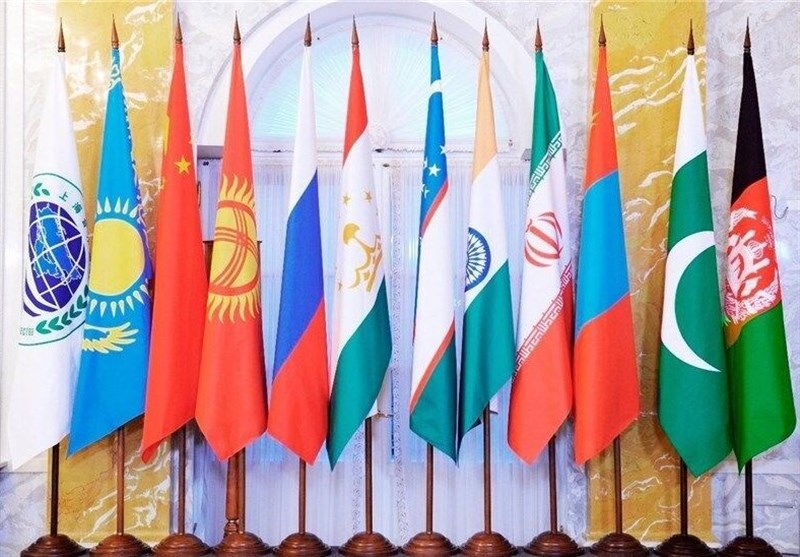
Economic opportunities
Since Pakistan is an emerging economic power in South Asia, it requires untapped and easily accessible markets to boost up its rising economic activities. Presently, the country mostly conducts business with the far countries such as the US and the European Union which not only burdens her with considerable transportation expenses, but also is rather risky owing to conditionality. However, the full membership of the potent SCO is likely to provide her with a wide range of trading prospects with nearby Central Asian states, China and emerging Russia, thus helping her to experience an upward economic trajectory. The members of the SCO will endow Pakistan with the following economic prospects:
Central Asia Republics (CARs)
The Central Asia region is well known for clichés such as the ‘Great Game’ and the ‘Silk Road’ on account of its possession of potential oil and gas resources. Fortunately, Central Asian states have intimate historical, cultural, religious and economic ties with Pakistan. Though these states are rich in precious natural resources, economically they still far lag behind partly due to ineffective administration and partly due to being fully land locked countries. On the other hand, Pakistan enjoys a significant geo-strategic location by having long enough coastal areas with deep sea ports such as Gwadar and Karachi which would provide the shortest and easiest sea trade routes to Central Asia. As a result, it would greatly assist both to overcome their simmering economic crises with the help of each other, and Pakistan could well become a ‘gateway’ to Central Asia for the outer world.
The Central Asian states have a huge economic potential for Pakistan. “Uzbekistan and Kazakhstan, the two significant Central Asian republics, are Eurasia’s treasure house of natural resources in terms of hydroelectric power, hydrocarbon, agronomical products and minerals. The Uzbeks are also rich in coal, copper and gold. Kazakhstan possesses 13 per cent of the world’s manganese, second largest producer of chromium, eight largest producer of phosphorus, fourth largest producer of lead and molybdenum and has large uranium reserves”.
Mohammad Yahya Effendi gives more details of Kazakhstan’s resource and her production. In Asia, Kazakhstan is number one in producing chromium, manganese, copper, lead, zinc, tungsten, and molybdenum and phosphorous. It is second in the production of iron, tantalum, and coal. Of the 99 elements of the periodic table, 70 have been dissevered in Kazakhstan’s “bowels” and sixty are being processed. In terms of actual production, Kazakhstan produces 25 million tons of oil per annum and this will double with expansion in the refining capacity at Aktau. The Tengiz oil field has potentials of 100 million tons per annum. The metal production capacity per annum is as under: Copper and lead more than 100,000 tons, Chromium 700,000 tons, Ferrous Rolled Metals is 430,000 tons.xvi
The land-locked Central Asian region is also in dire need to gain an access to the outer world. For this purpose, Pakistan may prove to be one of the best options due to its specific geographic location; it is located at the junction of South Asia and Middle East with a substantial outlet to the Arabian Sea. Pakistan should develop cordial economic relation with the region by providing access to Gwadar port. There is a great need to promote trade, energy, investment, transportation, banking, and tourism among the member states.
Pakistan should provide trade facilities to landlocked Central Asian States at Gwadar port. This port is more useful and a convenient potential trade route for the CARs. Via the Gwadar port, goods can be transported via land routes to Afghanistan, Tajikistan, Uzbekistan, and Turkmenistan and deeper into Central Asia. To make this possible, road and railway networks are being laid to link Gwadar to Afghanistan and Iran. Plans to open gateways on the Afghanistan and Iran borders are also under consideration. With these and similar developments, Balochistan can serve as a transit route to neighbouring countries of Afghanistan and Iran and as a trade gateway into Central Asia. The trade route can bring a number of investments to Pakistan. Central Asian States are relying more upon Pakistan for trade purpose.
China
Pakistan and China already enjoys amicable economic and political relations, but Pakistan’s recent full entry into the SCO is expected to augment bilateral relations manifold on account of existing economic frameworks of the organization. Importantly, now China would expedite the work on China Pakistan Economic Corridor (CPEC) which will instigate widespread economic prosperity.
Sino-Pak friendly relations touched new heights as both the countries signed 51 agreements And MoUs for cooperation in different fields. They rolled out a $45 billion portfolio agreed under the CPEC. Both signed agreements worth $28 billion to immediately kick-start early harvest projects, while projects worth $17 billion, which are in the pipeline, will follow as soon as the required studies, processes and formalities are completed. The groundbreaking and signing of financial agreements has demonstrated that there is a strong will on both sides to implement the portfolio of $45 billion agreed under the CPEC framework as early as possible to help Pakistan meet its energy needs.
Minister of Planning and Development Ahsan Iqbal said that the CPEC would cater to all federating units through extensive rail and road network and multiple projects in energy sector. The corridor project comprises modern highway and railway transportation system linking Kashgar in west China to Khunjrab in the north and onwards to Karachi and Gwadar in the south of Pakistan through multiple routes. Energy sector has been assigned top priority to help Pakistan overcome energy shortages in order to achieve higher growth rates for speedy development.xvii
The corridor projects initially envisage $34 billion investment in energy sector and around $11 billion in infrastructure sector. Both countries have finalised plans to add 10,400MW of electricity capacity through early harvest energy generation projects spread all across the country to be completed by 2017/18, and another 6,645MW of projects for energy on the actively promoted list. All energy projects will be on commercial basis in investment mode. After having completed all the requisite regulatory and other facilitation requirements, the two sides have concluded financial close for 200MW wind power projects, 5,580MW of coal-based power generation projects, 1,590MW hydro power project, 1,000MW solar project and 3.8MTPA coal mining project during the visit of Chinese president.xviii
According to Ahsan Iqbal, the Gwadar Port Project is the centre piece of Pak-China strategic partnership with its strategic location and potential for becoming the future economic and energy hub. Cluster of projects under the CPEC will transform it into one of the world’s leading port cities having top-class commercial and tourist facilities, integrated infrastructure and investment opportunities. This will make Gwadar a catalyst for development of the Makran Coast and Balochistan in particular and Pakistan in general. The CPEC would benefit all provinces and bring peace, harmony, cooperation and economic development in the entire country. The provincial capitals, Quetta, Peshawar, Karachi and Lahore are all major nodes of the project, whilst less-developed regions of the country including Fata, KP, AJK, Gilgit-Baltistan, South Punjab, Thar in interior Sindh and Gwadar in Balochistan will be brought into the folds of active development. Harnessing the wealth of hitherto untapped coal reserves for the last 67 years in drought-ridden Thar will transform it into an energy capital of the world.
Pakistan and China already enjoy strong military ties; Pakistan’s joining of the SCO would further foster Sino-Pak military relations tremendously. It will enhance Pakistan’s defence capability and capacity via either purchasing Chinese arms or producing sophisticated military hardware by joint ventures. It would provide Pakistan with this opportunity to expedite the joint development of the JF-17 Thunder fighter aircraft, K-8 Karakorum advance training aircraft, Al-Khalid tanks and prospective joint military exercises. Moreover, China will continue its military aid to Pakistan calculated to fight against terrorism which is confronting menacingly the latter. On the nuclear front, China has already helped building up the Khushab reactor and Chashma Nuclear Power Complex; it would increase its cooperation in the establishment of K2 and K3.
To further enhance bilateral military relations, Pakistan’s Army Chief General Raheel Sharif paid a two day visit to Beijing on January 2015. Chinese Foreign Minister Wang YI called Pak-China relations as irreplaceable and all weather. Significantly, China concluded the sale of eight conventional submarines worth $5 billion, the biggest ever arms sale by China in its history.
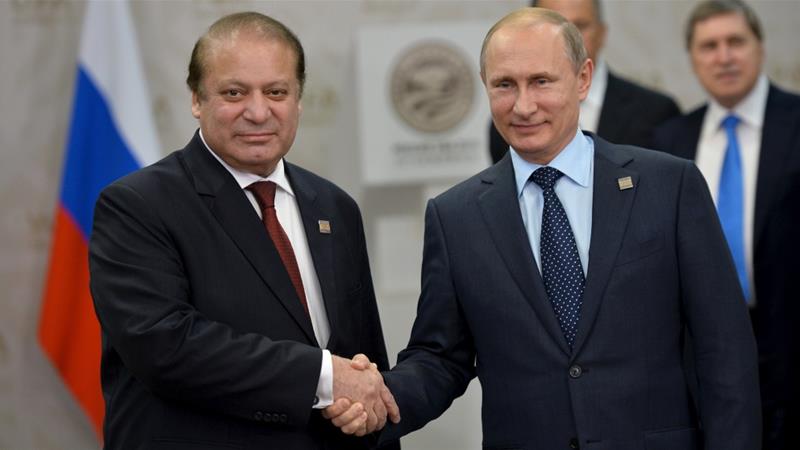
Russia
Another positive impact of SCO is expansion in Pak-Russian trade and commercial relations. Trade between the two countries is showing signs of expansion, though the balance is in favour of Russia. Pakistani businesses have direct contact with Russian entrepreneurs.xix There is great potential to improve economic cooperation by boosting commercial activities especially those of energy, heavy industry, automobiles, aircraft, industry, textile and agriculture etc. Russian expertise in energy export and pipeline projects can be exploited to promote regional economic integration of the region. Russian petroleum giant Gasprom has shown interest in laying the Iran-Pakistan and TAPI pipeline projects.xx Both countries possess great potential to increase bilateral trade in the near future.
Putin offered Russia’s assistance in expansion of Pakistan Steel Mills and provision of technical support for the Guddu and Muzaffargarh power plants and Russia is interested in developing the Thar Coal Project in November 7, 2011.xxi
Pakistan and Russia expressed their determination to remove all impediments in the way of finalising plans and projects already agreed upon in November 2014. In a joint statement issued at the conclusion of the third meeting of Pak-Russia Inter-Governmental Commission on Trade, Economic, Scientific and Technical Cooperation in Moscow, the two countries reiterated to cooperate with each other and encourage private entrepreneurs. Both the countries said they would cooperate in various projects related to oil and gas exploration; construction of floating LNG terminals, North-South gas pipeline from Gwadar to Nawabshah; sharing of seismic and geological data; enhanced oil recovery; LPG processing facility and gas purification plants; modernisation of oil and gas infrastructure; innovative technology solutions in coal industry; and building and renovation of various power generating units in Pakistan, especially those of Russian origin.xxii
Major Russian companies in the energy sector including Technopromexport, Rostec-Global Resources, Rushydro International, Power Machines, Inter RAO, United Engine Corporation, and Stochinsky Institute of Mining have shown keen interest in cooperation with Pakistan. Separately, senior executives of the Russian bank VneshTorgovBank (VTB) met Dar, and offered a credit line of $1 billion for energy projects in Pakistan. They were also interested in visiting Pakistan for further financial transactions. Dar suggested that the bank should also participate in other projects besides energy.30 A delegation of another Russian public-sector enterprise, Tyazhpromexport, headed by its First Deputy Director General Maxim Shabala, also held talks with Dar and reiterated its interest in rehabilitating and refurbishing Pakistan Steel Mills (PSM).xxiii
Russian companies are ready to render service in mineral exploration, developing offshore fields, building underground storage facilities and training personnel for oil and gas industries of Pakistan. Russia is in a position to assist Pakistan in developing its infrastructure, modernisation of its industrial and agriculture sectors, human resource development and boosting the competitiveness of its industries. Russia can help the country in the development of water & power, oil & gas and heavy industrial complex, chemicals, fertilizers, wood pulp, iron & steel etc. can be imported at very competitive prices. Moreover, Pakistan is the 3rd largest textile exporting country in the world whereas Russia is the 3rd largest textile importing country in the world after USA & EU. These facts are providing tremendous opportunities for the promotion and development of textile trade between the two countries. In addition, Pakistan can export to Russia rice, sports goods, leather goods, surgical instruments, pharmaceuticals and many more. The consumer goods market in Russia consists of 2.27 trillion dollar and if a proper strategy is adopted than Pakistan can surge its consumer goods export to Russia up to one billion dollars within a year. Therefore it has become imperative for the government and private sector to work jointly in providing the trade facilities on huge scale in removing the trade barriers, which are hampering our exports.
Last year Russia banned imports of food items from EU which has created $10 billion gap. Pakistan has the opportunity to export $2billion of fruits, vegetables, meat, milk, dairy, fish and other food items. Unfortunately, Pakistan is still busy in other things and has so far paid no attention to capitalize on that great opportunity. From last year, due to the conflict of Russia and Ukraine, the USA and EU have imposed economic sanctions on Russia forcing the latter to get out of the Ukraine which seems not possible as Russia has its own strategic interests in Ukraine and will never go out of there. Since Pakistan has come closer enough to Russia due to its full membership at the SCO, this is a great opportunity for her to offer its economic co-operation and making its position strong in the Russian market, thereby making bilateral relationship stronger.
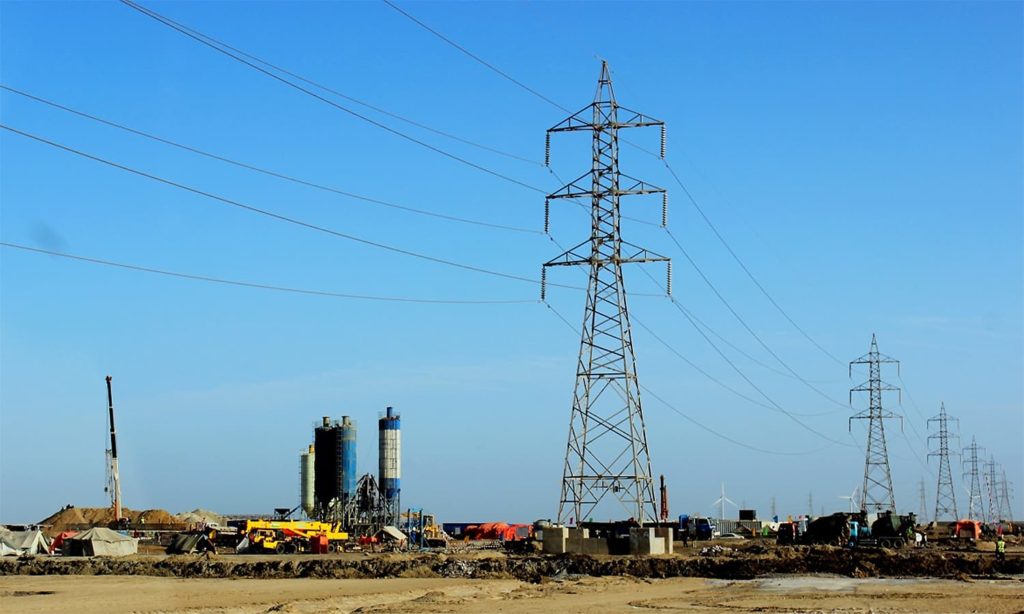
Eradication of energy crisis
Pakistan has been gripped by severe energy shortages for some years with parts of the country facing electricity cuts for up to 20 hours a day. The country has an installed electricity capacity of 22,797 megawatts (MW), but production stands at a dismal 12,000 MW. The burgeoning energy crisis is due to lack of prudent policies by all successive governments. The same crisis is obstructive drains on the stagnated economy. Without resolving the rising energy issue, the country cannot progress economically. However, Pakistan’s full membership to the SCO which is composed of energy rich Central Asia states and Russia would greatly assist to wipe out power outages by 2017, thereby expediting its economic growth to the maximum.
Pakistan being an energy deficit country, its energy needs are growing gradually. Its present energy crisis is one of the most serious issues of the country. By joining the SCO, Pakistan intends to solve the problem of its energy deficiency on a long term basis. The Central Asian countries are quite rich in growing energy resources such as oil, gas, coal and uranium which could well prove to be adequate enough to sort of all sorts of Pakistan’s energy crisis, thus ushering in unhindered economic prosperity. “In this connection the Trans-Afghan Pipeline Project generally known as TAPI will act as a milestone”.
Moreover, by establishing rail and road networks, Pakistan can also access to the rich energy resources of the region. According to the British Petroleum’s 2013 Statistical Review of World Energy, only Kazakhstan and Turkmenistan have 3.6 billion barrels of proven oil and 663.8 trillion cubic feet of proven natural gas reserves. Moreover, Kazakhstan possesses the Central Asian largest recoverable coal reserves 33.6 billion tones. Besides, according to the World Nuclear Association, it holds the second largest reserves of uranium with 679,300 tonnes, 12 percent of the world’s total uranium. Kazakhstan is the “world’s second largest producer chromium, ranks as the eighth largest producer of iron, second largest producer of phosphorous, fourth largest producer of lead and molybdenum . In this regard, Pakistan may seek out the technical assistance of Russian oil and gas companies particularly Gazprom.
Elimination of terrorism and militancy
Pakistan has been immersed in waging a long-drawn-out against the terrorism and militancy since 2001. Due to this war, the country has so far lost approximately 50,000 precious lives and around $ 100 billion in economic loses. On account of terrorism, the country has lost a considerable amount of foreign direct investments and businesses of both small and large scale are leaving the country due to deteriorating law and order. It is imperative to flush out all sorts of terrorist and militant groups using an iron hand. In this regard, the organizational frameworks of the SCO such as counter terrorism and counter militancy would be quite helpful to Pakistan to dismantle and root out anti state actors not only from its soil, but also in the region.
Pakistan, in the aftermath of 9/11 has been effectively contributing to curbing the menace of terrorism and extremism. Pakistan‘s achievements are noteworthy especially in successful launching of counter insurgency operations in Swat, Federally Administered Tribal Areas (FATA) and other frontier regions. SCO countries are also vulnerable to security issues particularly Russia facing Chechens, Chinese are apprehensive about the rise of the Uyghurs in Xinxiang province and the CARs are concerned about the upsurge of extremist elements in Farghana Valley of Central Asia. SCO can immensely benefit from the achievements made by Pakistan.
The SCO has successfully devised a strategy to promote regional security and domestic stability. SCO‘s security paradigm rotates around supporting military cooperation and collaboration and countering inter regional and intra regional threats including drug trafficking, arms trafficking, organized crimes and terrorism. The alliance regularly undertakes joint ground, air and naval exercises to enhance efficacy while conducting operations against terrorism, separatism and extremism. These military drills are indication of cooperation among the member states to fight a common enemy collectively or individually.xxiv
The establishment of Regional Anti-Terrorist Structure (RATS) initially in the year 2002 at Bishkek, later on shifting of its headquarters to Tashkent in 2004 is considered to be a milestone in history of SCO. The RATS headquarters is a nucleus of intelligence sharing in respect of the ‘Three Evils’ among the member states. It also serves as a data bank about the terrorist outfits, organizing seminars on curbing terrorism, rendering specialized training and maintains contact with other international security organizations.
Pakistan also shares SCO’s concerns regarding the three evils of terrorism, extremism and separatism. Under the umbrella of the SCO it would acquire comprehensive counter-terrorism and counter-militancy assistance from the Tashkent-based RATS to stamp out rampaging terrorism, militancy and disruptive low-intensity insurgency of restive Balochistan. Moreover, coordinative intelligence sharing and joint operation between Pakistan and Uzbekistan will greatly help them clamp down upon the deadly Islamic Movement of Uzbekistan that carries out fatal terrorist attacks on Pakistan time and again such as one on the Peshawar Army School.
Despite these successes al Qaeda has not been completely eliminated. The southern Afghan provinces i.e. Helmand, Kandahar, Oruzgan, and Zabol as well as eastern Afghan provinces i.e. Paktika, Paktia, Khowst, Nangarhar, and Konar became hub of Afghan insurgents and al-Qaeda-led terrorist syndicate.xxv No doubt Afghanistan is the major center of terrorism, extremism and militancy in not only Pakistan, but also some Central Asian states, Chinese western region and in Russia. By capitalising upon a sort of prudent diplomacy, Pakistan could well persuade the members of the organization to collectively negotiate with the Afghan government aimed at either flushing out terrorists or coordinate and cooperate with the SCO to cleanse Afghanistan from the menacing spectre of terrorism and militancy. Moreover, the organization may also establish adequate number of counter terrorism forces equally drawn from the states, and they are fully trained and equipped to counter terrorism.
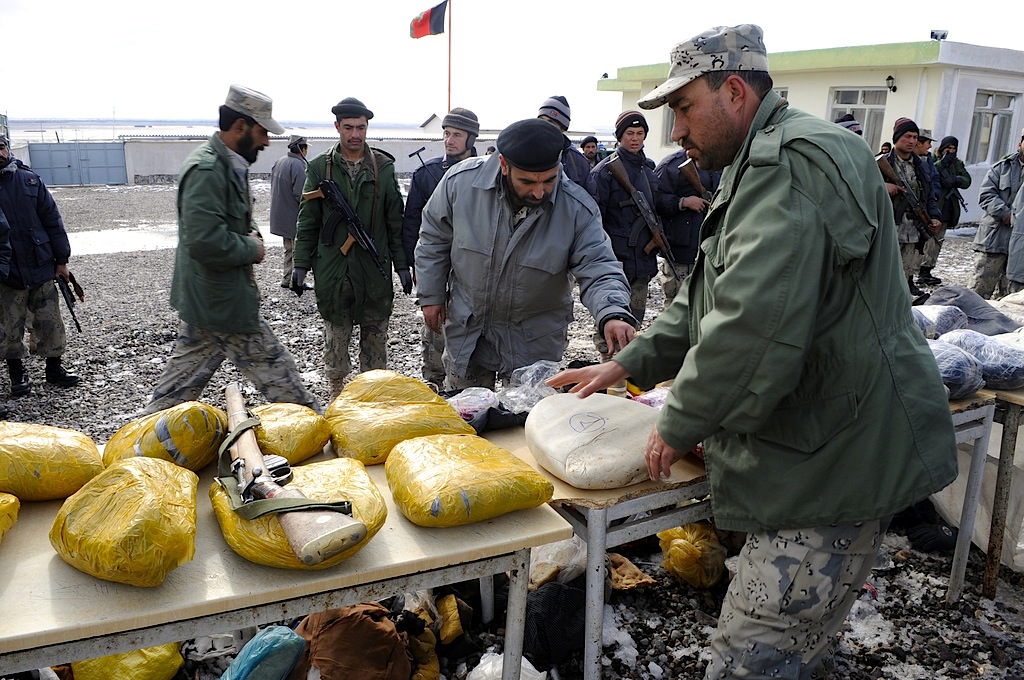
Elimination of burgeoning drug trafficking
The withdrawal of USA Coalition Forces from Afghanistan poses serious security challenges to the region with unpredictable out-comes. Direct threats to Central Asian states will stem from acts of terrorism and organized criminal groups from Afghanistan linked to drugs and arms trafficking. One of the most imminent risk factors that may destabilize the fragile security situation is rampant narcotics-related crime. Pakistan can adopt a two-pronged approach by joining hands with the SCO to ruin drug cultivation in Afghanistan and bust drug cartels operating in the region. With China, Russia and India, Pakistan may conduct vigorous joint naval anti-narcotics drive in the Arabian Sea against the drug smuggling.
The world‘s largest share of drugs comes from Afghanistan and transited to different parts of the world mainly via Pakistan, Iran, Tajikistan and Uzbekistan. SCO‘s joint anti-drug trafficking drills can help Pakistan not only through training of personnel (Anti-Narcotics Task Force), but intelligence sharing can help to expose the network of drug barons. The SCO realizes the increasing drug trafficking problem, which poses a serious security challenge to its members. In this context, the optimistic development is that the SCO members are now considering the option to create a special center which could work in close contact with the Regional Anti-terrorist Structure (RATS). The creation of a center certainly contributes constructively in the prevention of drug smuggling and impeding the terrorist-criminal networks in the region. In this context, definitely, the cooperation of Afghanistan and Pakistan is imperative. Thus, the expansion of SCO would strengthen the law enforcement agencies of the new full members to break the terrorist-crime network.
Conclude
The SCO provides Pakistan with potential opportunities which could immensely help her achieve some national policy objectives. After the historic membership, Pakistan can enhance its economic and defense ties with Russia. Apart from this, the energy-rich CARs are not only beneficial in terms of energy, they would also afford Pakistan a chance to capitalize on their growing economic markets for its exports and imports. Along with the members of the organization, Pakistan can jointly work to stamp out both terrorism and the regional drug trade. To attain these objectives, the PML-N government should complete its homework and prudently reform all the lethargic sectors of the country.
End Notes
ihttp://www.hindustantimes.com/analysis/the-importance-of-the-sco-is-often-overstated/story-eOH1cC5X3wmFvCItdcFmyH.html
iiDr. Zahid Ali Khan, Pakistan and shanghai cooperation organization ,IPRI Journal XIII, no. 1 (Winter 2013), page 64
iiiIbid 65
ivIbid 65-66
vMuhammad Farooq Afzal, “Pak-Russia Relations Past, Present and Future,” Business Recorder, June 12, 2006.
viAzhar Durrani, “Pak-Russia Ties Improving,” Business Recorder, June 12, 2006.
viiDr. Zahid Ali Khan 66
viiihttp://www.ipripak.org/russias-revival-opportunities-and-limitations-for-pakistan/#sthash.cMFPNUgz.dpbs
ixhttps://en.wikipedia.org/wiki/2011_NATO_attack_in_Pakistan
xhttps://en.wikipedia.org/wiki/Pakistan%E2%80%93Russia_relations
xihttp://tribune.com.pk/story/446669/pakistan-to-seek-early-rescheduling-of-russian-presidents-visit/
xiihttps://en.wikipedia.org/wiki/Pakistan%E2%80%93Russia_relations
xiiihttp://www.pakistantoday.com.pk/2013/08/05/national/pakistan-russia-to-boost-military-cooperation/
xivhttp://www.dawn.com/news/1039487
xvhttp://www.dawn.com/news/1188819
xvihttp://pu.edu.pk/images/journal/pols/pdf-files/Umbreen%20-%20Naheeda_V21_Issue1_2014.pdf
xviihttps://www.thenews.com.pk/print/12110-pak-china-trade-volume-to-be-taken-to-20-bn
xviiiIbid
xixhttp://www.ipripak.org/wp-content/uploads/2014/02/art4zahw13.pdf
xxibid
xxihttp://pu.edu.pk/images/journal/pols/pdf-files/Pak russia%20relations,%20opportunities%20Nazir_Vol_19_Issue_1_2012.pdf
xxiihttp://paktribune.com/news/Pak-Russia-to-cooperate-in-trade-Ishaq-Dar-272699.html
xxiiihttp://www.dawn.com/news/1147615
xxivhttp://www.ipripak.org/wp-content/uploads/2014/01/srse.pdf
xxvIbid
Contributed by:
Dr. Faisal Javed


